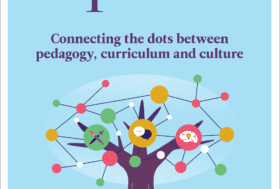An introduction to spaced practice
Spacing is a way in which we can interrupt the process of forgetting in our pupils, and support their retention of knowledge long-term. This concept is essential when we’re considering retrieval practice.
The effect of retrieval practice has only been seen to be obvious over a few days or more. The gaps between one retrieval practice and another is known as spacing; the time delay that exists between revisiting learned materials. It’s important to apply spacing to retrieval practice, no matter what form it takes. Whilst retrieval of knowledge will be recycled across the term or year, it’s helpful to distribute these opportunities to practice across a number of days, weeks and lessons. In one lesson you may choose to recap the previous week’s learning. You then don’t offer another retrieval opportunity on the same piece of knowledge until, for instance, five lessons later. This is in order to leave room for the process of forgetting that takes place between the two opportunities for retrieval.
Dunslosky (2013) gives the example of learning spellings through spaced practice. Instead of writing each spelling 10 times, it is more effective to write each spelling once, before returning to the first word to do the same 9 more times. The same principle applies for timetabling revision before an exam – knowledge and skills are retained for a longer period of time when practice is spaced with time delays.
In the classroom we can utilise this method by using long-term and short-term spacing.
Long-term spacing requires us to regularly revisit previously-taught material over a series of lessons, a unit of work, or an academic year.
Short-term spacing can occur within a single lesson and includes any recap or recall activity that repeats or reinforces recent content or instruction.
In this video, we hear from Jonathan Firth, Teaching Fellow in Psychology with an introduction to spaced practice. As you watch, consider:
- What are some of the key principles of spaced practice that might be helpful to you?
- What could you explore further for your own context?
[mycred_video id=”375923556″]





